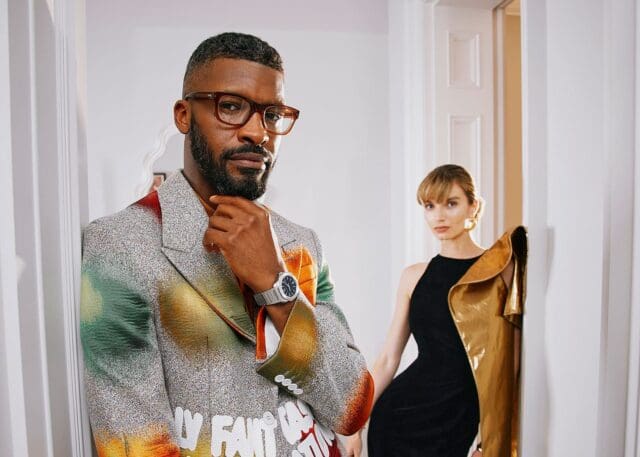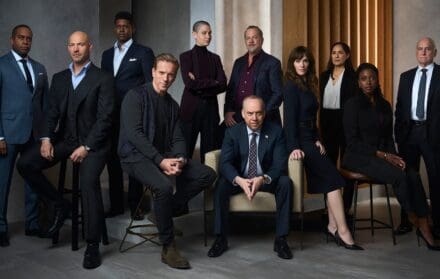
Michael Jackson’s Secret Bahrain Bolthole
"Despite the victory, the ordeal of the trial left Jackson a broken man"
If ever a man was looking to run away from the spotlight he could do worse than move to Bahrain. Such was the decision taken by Michael Jackson in the immediate aftermath of the trial that, in the summer of 2005, cleared him of 10 charges of child abuse, including molestation, kidnap and the supply of alcohol to the then underage Gavin Arvizo.
Despite the victory, the ordeal of the trial, and the lurid details of Jackson’s personal life that were revealed during the four-month court case, left him a broken man: his innocence proven but his image, long mired in controversy, left permanently tainted.

At the new National Portrait Gallery exhibition, Michael Jackson: On the Wall, there are no images of the performer’s little-known time spent living in Bahrain. It’s only by glimpsing into this episode that we can truly understand how the subsequent comeback shows scheduled for London’s O2 arena were perhaps always doomed to never take place.
“He went into total seclusion”, an unnamed source told Jackson’s biographer J. Randy Taraborrelli. “He almost lost it all – his freedom, his family, his career. You don’t just bounce back from something like that.”

To run away from his Neverland Ranch seemed entirely understandable. Yet Jackson caused anger among his own family who, despite staying loyal to him during the trial, were to see almost nothing of him in the months following his acquittal.
Not blessed with the oil wealth of its neighbouring Gulf States, Manama, the capital of Bahrain, has a distinctly less glitzy air to it than Dubai or Doha. Tiny Bahrain’s main function in the region is as a Vegas-esque getaway for Saudi Arabians. The two nations are linked by a ‘friendship bridge’ and Bahrain’s laws on alcohol and sex outside of marriage are more relaxed, so groups of men, weekending from Riyadh, drinking beer and fraternising with tourists and prostitutes, are a common sight in the hotel bars of Manama.

Jackson, unsurprisingly, had no desire to sample the less than sophisticated nightlife of the city. He took advantage of a connection made previously by his brother Jermaine, who converted to Islam after a visit to the island nation, to hole up in the royal palace. Befriended by Sheikh Abdullah bin Hamad bin Isa Al-Khalifa, Jackson allowed himself to be pampered by the prince who, over the following months, would claim to be looking after almost all of Jackson’s business interests. So, in temperatures regularly exceeding 40°C, Jackson’s new life in Bahrain, which he intended to be permanent, took shape.
Rarely seeing anybody other than his children and their nanny, Jackson became a regular at the China Garden restaurant inside the sumptuous Gulf Hotel Bahrain, hiring out the whole eatery and dining, utterly alone, amid scores of empty tables.
Suffering from persistent nightmares and exhibiting signs of what his inner circle would later claim were signs of post-traumatic stress disorder, Jackson began therapy sessions for the first time in his life. “He felt totally victimised by Gavin, the rest of the scheming Arvizos and also by the Santa Barbara district attorney”, one of the inner circle told Taraborrelli. “God forgive me but I hate that kid,” Jackson is said to have remarked. “I so hate that kid”.

What would turn out to be one of Jackson’s last chances to re-invent his life, well out of the way of the US media spotlight, took only a matter of months to fall apart. Living in a mansion a couple of miles south of Manama, he did receive occasional guests from the music world, including a member of 50 Cent’s G-Unit rap group. DJ Whoo Kid claimed to have had a number of meetings with Jackson and, as he later recalled, gave the fallen megastar some blunt advice when Jackson asked him about how he should change his image: “I told him he needs to cut his hair, get some million-dollar earrings, get a million-dollar watch and take all them spaceship clothes off.” The idea of Jackson returning to the spotlight as a muscled, shaven-haired bad boy was, for better or worse, never to become manifest.
While occasional sightings of Jackson and his children in the shopping malls of Manama prompted speculation about his mindset (he often wore the veil, abaya and gloves typically worn by conservative Bahraini women), rumours spread locally that a Jackson-endorsed music academy and theme park were in the development stages.

Like so many of Jackson’s plans, both professional and personal in his later years, his Gulf State reinvention was to end quickly and leave a trail of debt and discord in its wake. In June 2006 it was announced that Jackson had parted company with his representatives and legal team in Bahrain, and was heading to an undisclosed destination in Europe.
Lawsuits followed closely behind his abrupt diparture, with Sheikh Abdulla suing Jackson for $7 million over accusations that the star reneged on a contract for an album, autobiography and a stage play after taking millions of dollars in advances. The case was settled out of court but a mere 11 months after leaving Bahrain, Jackson, aged just 50, died in Los Angeles. Ultimately, according to many in Jackson’s inner circle, the desire to be accepted in the West again simply made his Middle Eastern exile impossible to sustain.

Nearly a decade on from his death, this strange episode appears like a lost opportunity. The chance to record music in the studio that the Sheikh built for him, the time to begin reaping the benefits of the therapy he had belatedly embarked upon and the opportunity to take serious time out of the spotlight were all within his grasp. Perhaps Jackson’s tragedy is that, despite the quiet and calm that Bahrain offered him, his need to perform and his hunger to be loved by the world was what drove him away from the tiny island that, initially, promised so much.
Michael Jackson On The Wall, sponsored by Hugo Boss, from £17.50, until 21 October 2018, National Portrait Gallery, St Martin’s PLace, WC2H npg.org.uk








